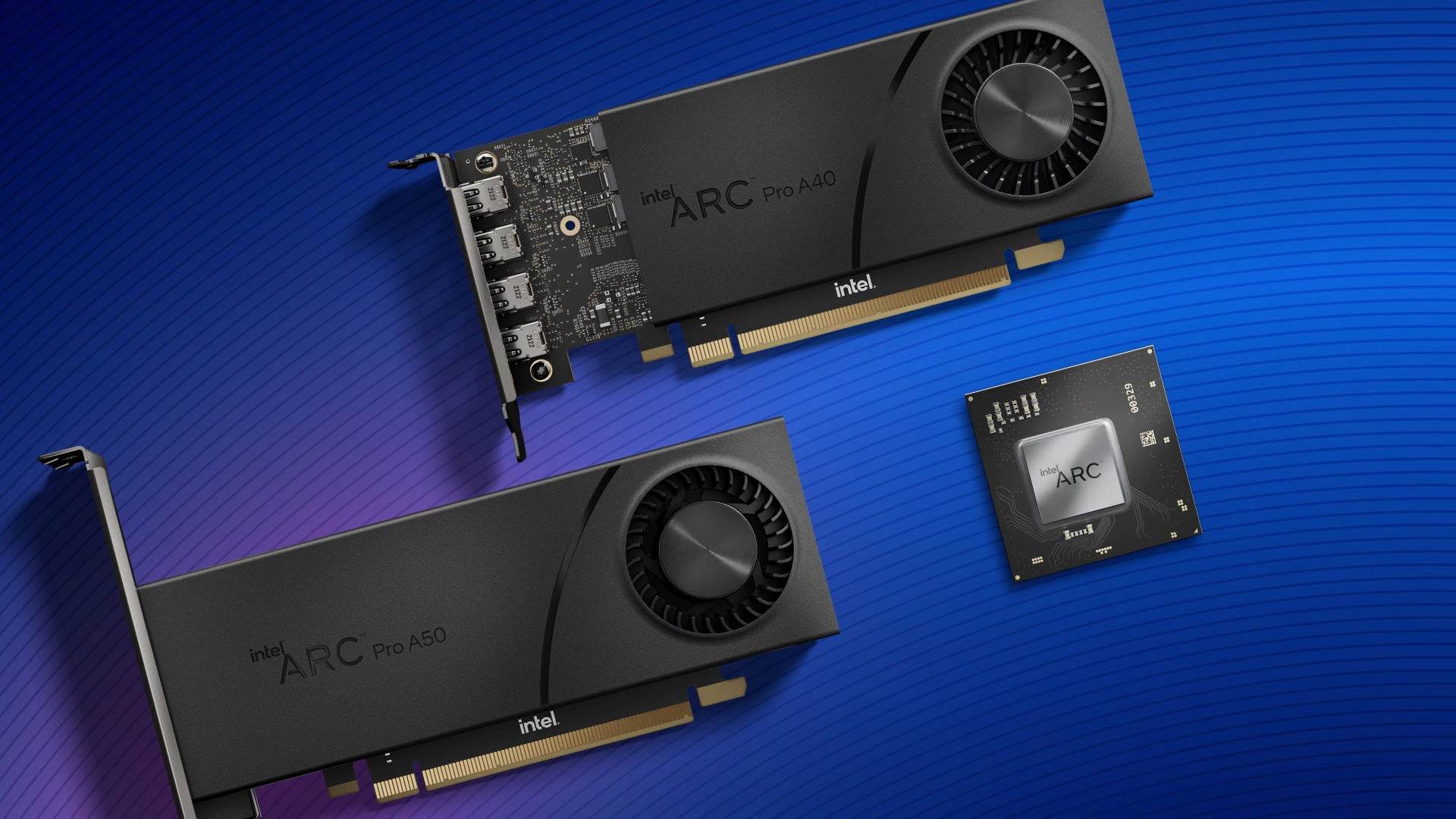Intel hints premium Arc GPU launching soon to take on AMD, Nvidia
Intel wants to take on Nvidia RTX 3060 Ti and AMD Radeon RX 6650 XT

All the latest news, reviews, and guides for Windows and Xbox diehards.
You are now subscribed
Your newsletter sign-up was successful
What you need to know
- Intel revealed that its premium Arc A770 and A750 discrete desktop graphics cards are coming very soon, though an exact date was not specified.
- Intel remains silect on pricing for the A770 and A750.
- The A770 is expected to compete against rivals Nvidia's RTX 3060 Ti and AMD's Radeon RX 6650 XT GPUs.
- The A750 is expected to take on Nvidia's RTX 3060 and AMD's Radeon RX 6600.
Intel's premium Arc Alchemist A7 discrete graphics cards are coming very soon, according to executives in recent media interviews, with the GPUs arriving in both reference designs from the company as well as third-party manufacturers. The flagship A770 card is expected to compete against Nvidia's GeForce RTX 3060 Ti series, so Intel won't be launching in the premium segment.
These tidbits were revealed in recent media interviews that Intel executives gave to gaming publications, like PC Games Hardware, Digital Foundry, and VideoCardz, according to reporting from our sister site TechRadar. The executives revealed that the premium A7 series will be joining the budget A380 card "very soon." A specific launch date was not disclosed, but industry experts speculated that a debut could happen as early as later this month.
Intel's Tom Peterson informed VideoCardz that the delay in launching Arc on desktop was caused by supply chain issues, game compatibility, and ensuring that buyers had a good experience.
It also appears that Intel isn't planning on a wide-scale global launch, at least not in the early stages. Initially, the launch will be targeted at a few key countries, so it's unclear which markets the A770 and the A750 will arrive in. Germany is said to be one of those markets. Intel also cautioned that there will be limited quantities at launch.
And while the A770 is designed to compete against Nvidia's RTX 3060 Ti, the A750 will be slightly scaled down to compete against the RTX 3060 non-Ti variant. More recently, Intel had shared ray tracing benchmarks ahead of the premium Arc A7 series launch, showing that its cards outperformed Nvidia's RTX 3060.
On the AMD side of the market, the A770 will be competing against the Radeon RX 6650XT, while the Radeon RX 6600 is seen as the direct competitor against Intel's Arc A750. The A770 has been confirmed to support either 8GB or 16GB of memory, depending on the edition you purchase.
Given that both rivals are already working on next-generation RTX 4000 and Radeon RX 7000 series graphics, Intel will likely need to further tune performance to remain competitive. The Arc A770 and 750 boards from Intel's partners will come with factory overclocked variants with higher power limits, which will mean these overclocked GPUs can deliver better performance than the default reference designs.
Executives stated that performance levels will vary depending on the task you're doing or the game you'll be playing. And if the title is designed with DirectX 12 or Vulkan, you'll get more consistent performance than DirectX 11 games. Another challenge that Intel will need to work out ahead of launch is the heavy reliance on the Resizable BAR at launch, which could pose a challenge to older systems upgrading to Intel Arc graphics. The company is working on driver optimizations to help older systems get the most out of the ReBAR feature.
Though Intel has been eager at positioning the performance of its upcoming Arc cards against mainstream AMD Radeon and Nvidia RTX rivals, the company has remained silent on the pricing of the A770 ahead of launch. Industry observers are hopeful that Intel will make a play on its GPU rivals and compete on price at launch, which could be a huge win for gamers on a budget.
All the latest news, reviews, and guides for Windows and Xbox diehards.

Chuong's passion for gadgets began with the humble PDA. Since then, he has covered a range of consumer and enterprise devices, raning from smartphones to tablets, laptops to desktops and everything in between for publications like Pocketnow, Digital Trends, Wareable, Paste Magazine, and TechRadar in the past before joining the awesome team at Windows Central. Based in the San Francisco Bay Area, when not working, he likes exploring the diverse and eclectic food scene, taking short jaunts to wine country, soaking in the sun along California's coast, consuming news, and finding new hiking trails.
